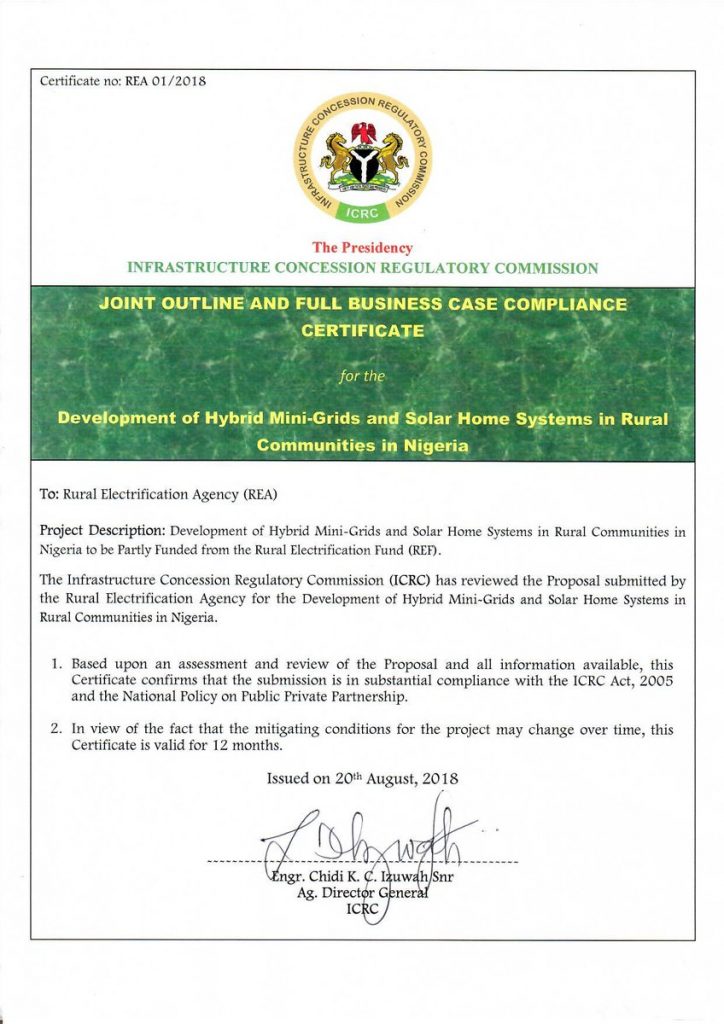The Rural Electrification Agency (REA) has been granted the nod by the Infrastructure Concession Regulatory Commission (ICRC) to go ahead with its mini grid and solar home systems (SHS) projects, from which it plans to generate circa 3000 megawatts (MW) of off grid electricity for use mostly by Nigeria’s rural dwellers.
According to a tweet from the official handle of the REA, the ICRC awarded it a Certificate of Compliance in accordance with the ICRC Act, 2005 and the National Policy on Public Private Partnership (PPP) for the deployment of mini-grids and SHS.
The tweet indicated the ICRC had given its ‘Joint Outline and Full Business Case Compliance Certificate’ to the REA, which would enable it proceed with its implementation of the projects.
“Based upon an assessment and review of the proposal and all information available, this certificate confirms that the submission is in substantial compliance with the ICRC Act 2005, and the National Policy on Public Private Partnership.
“In view of the the fact that the mitigating conditions for the project may change over time, this certificate is valid for 12 months,” said the document which was signed by the Acting Director General of the ICRC, Mr. Chidi Izuwa.

Even though the REA had received knocks from electricity distribution companies (Discos) in Nigeria’s power sector for opting to develop mini grids in parts of the country they considered their franchise areas albeit wrongly, the World Bank had approved to loan it $350 million to fund the mini grid projects.
The Managing Director of REA, Mrs. Damilola Ogunbiyi, had at a meeting in Abuja in the recent past, explained how the $350 million loan would be used. According to Ogunbiyi, $100 million of the money would be spent on mini grid development.
“The total loan amount for the electrification programme is $350 million, of which $100 million of that is going to be dedicated to mini grid development. As for the total quantum of electricity being targeted with the 10,000 mini grids, we are trying to achieve 3,000 megawatts.
“Some sites could be 150 kilowatts, some others 20KW, etc, but 10,000 (mini grids) is just a guide because people always need figures when we need to drive something home. So, it could be less than that, but if we can achieve 3,000 megawatts on off-grid, which will be close to the power generated on-grid, we will be very happy,” said Ogunbiyi then.
She also explained that the loan will be disbursed through the World Bank’s Nigeria Electrification Project (NEP) to be implemented by REA after its approval in April 2018.
She added that in Nigeria, businesses spend up to N40 billion every year to generate electricity that are expensive, but that the REA was working with the private sector to provide off grid power supply strategies for businesses in the country.
Ogunbiyi, further noted that about N9 billion worth of profit could be earned from deployment of SHS and mini grid systems in Nigeria if private investors chose to put their monies there.





